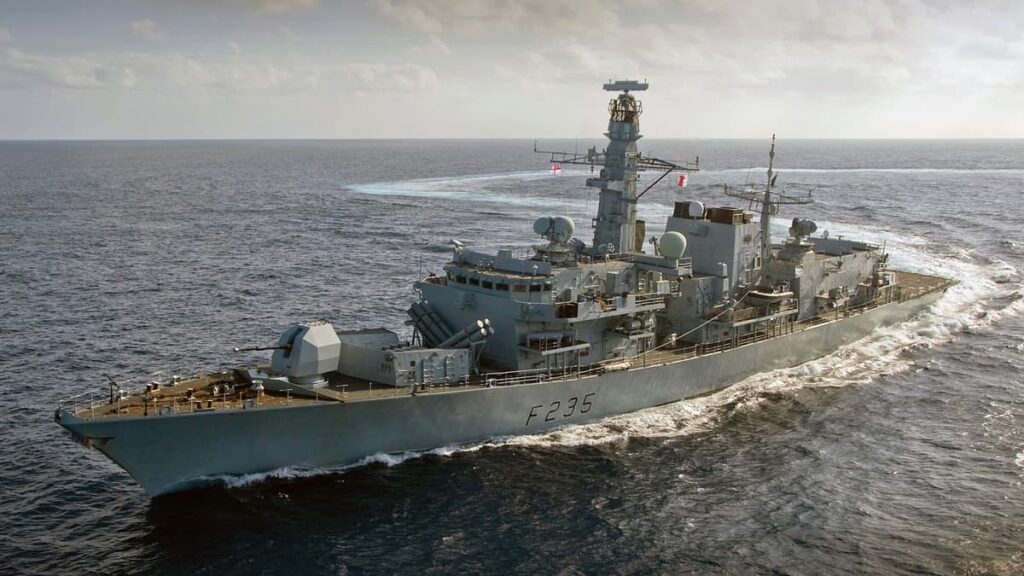MSC Rita’s Fiery Farewell: Container Ship Sold for Recycling Amidst Industry Challenges
In June, a significant event unfolded in the maritime world as a fire broke out on the MSC Rita, a container ship belonging to MSC Mediterranean Shipping Company. The vessel was anchored off Abu Dhabi’s Khalifa Port at the time. Now, recent reports reveal that the 8,034 twenty-foot equivalent unit (TEU) ship, constructed in 2005, has been sold for recycling. The transaction occurred on an “as is” basis at Khalifa Port, and the financial details of the deal have not been disclosed. The MSC Rita is set to be towed to an MSC-approved yard in Alang, India, for environmentally friendly recycling.
The fire primarily impacted the ship’s engine room, causing damage. While the vessel was not officially declared a constructive total loss, MSC chose to retire it from service due to the impracticality of the repair costs. The decision aligns with the company’s approach to scrapping ships when the expenses of restoration become economically unviable. Notably, MSC has been at the forefront of ship recycling throughout the year. In a similar move, the company had earlier sold the MSC Chiara, a 2,078 TEU container ship built in 1987, to an approved facility in Alang for $535 per light displacement tonnage (ldt), totaling $7.7 million.
The Mysteries of Ship Bending Unveiled: A Dive into the Curious Phenomenon
The sale of the MSC Rita marks the fifteenth ship that the Swiss liner giant has offloaded for recycling in the current year. This trend underscores MSC’s commitment to sustainable practices in vessel management. However, the overall volume of container ship recycling in 2023 has been below expectations, primarily attributed to the prevailing market downturn. Most of the vessels sold for recycling were older feeder-size ships, indicating a strategic shift in the industry.
In a recent development, the Xiamen Qiyuan Shipping’s Ze Hong, a 2,480 TEU vessel built in 1995, was reported to have been sold to cash buyers for $520 per ldt or $6 million. The sale followed an “as is” Zhoushan basis, with the ship carrying 200 tonnes of fuel. This transaction aligns with the prevalent market conditions where older and smaller vessels are being sold for recycling. The sale of such ships, like the MSC Rita and Ze Hong, contributes to the recycling volumes in the maritime industry.
The recycling trend extends beyond container ships to bulkers. Two bulk carriers were reported to have been sold for recycling in the past week. Vietnam Ocean Shipping’s Neptune Star, a 25,400 deadweight tonnage (dwt) vessel built in 1996, reportedly fetched $512 per ldt or $2.8 million on a delivered Alang basis. Similarly, the African Express, registered in the Marshall Islands, sold its 42,500 dwt open-hatch bulk carrier Diamond Way, built in 1995, to a recycling facility in Alang. The exact sale price remains undisclosed.
Navigating the Seas of Regulation: The EU Ship Recycling DilemmaMarket sources suggest that the purchasing activities of recyclers in the Indian subcontinent are currently subdued. This is attributed to a decline in Indian domestic steel prices, creating a negative sentiment in the industry. Additionally, reports indicate that banks in Bangladesh are once again tightening the issuance of letters of credit, further impacting the recycling market. These factors collectively contribute to the challenges faced by ship recyclers in the region. Container ship recycling volumes during 2023 have remained lower than expected given the market downturn. Most vessels sold were older feeder–size ships
In conclusion, the sale of the MSC Rita for recycling reflects the broader industry trend of retiring older vessels, especially in the face of repair costs deemed economically unfeasible. MSC’s proactive approach to sustainable ship management is evident in its consistent involvement in ship recycling activities. The current market conditions, marked by a downturn and subdued purchasing activities, pose challenges for recyclers in the Indian subcontinent. The maritime industry continues to navigate the delicate balance between economic viability and environmental responsibility in ship disposal practices.







